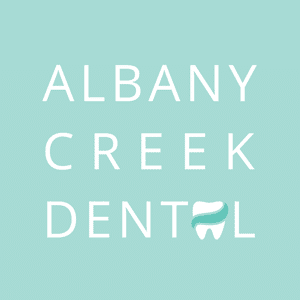Plaque buildup is a sticky film of bacteria that forms on your teeth and can cause a range of oral issues like cavities and gum disease. However, with proper techniques, you can learn how to remove plaque from teeth effectively and maintain a healthy smile. In this post, we will provide expert insights and natural solutions to help you keep your teeth clean and sparkling.
How to Remove Dental Plaque
Maintaining a healthy mouth requires eliminating dental plaque to prevent cavities and gum problems. This involves both your daily routine and professional dental visits. Here are some ways to combat plaque:
Regular Brushing and Flossing
- Brushing: Brush your teeth twice daily for two minutes with fluoride toothpaste and a soft-bristled brush. Reach every tooth surface to remove plaque effectively.
- Flossing: Floss daily to eliminate plaque and food stuck between your teeth, which your toothbrush may not reach.
Use of Dental Products
- Mouthwash: Using a mouthwash with antiseptic properties helps reduce plaque and prevent bacteria from causing it.
- Interdental Brushes: These small brushes clean the gaps between teeth, which may be more effective than floss for some individuals, aiding in plaque removal.
Professional Dental Cleanings
- Routine Check-Ups: Visiting the dentist every six months allows them to deep clean and remove plaque and tartar that daily cleaning may miss. Routine dental visits help identify any plaque and tartar buildup and ensure your oral hygiene practices are successful.
- Read More: HOW LONG AFTER TEETH CLEANING CAN I EAT?
- Read More: EMERGENCY DENTAL: WHEN TO CALL YOUR DENTIST
How to Remove Plaque from Teeth Naturally
Along with your regular dental care, using natural methods can help reduce plaque on your teeth. Try these tips:
Dietary Changes
- Crunchy Fruits and Vegetables: Foods like apples, carrots, and celery can help clean your teeth. Their texture scrapes food and plaque off your teeth, and they make you produce more saliva, which also helps clean your mouth.
- Limit Sugary Foods: Sugar is the main culprit behind bacteria that build up plaque. Cut down on sugary food and drinks to reduce plaque. Choose healthy snacks and drinks for cleaner teeth.
Home Remedies
- Baking Soda: Baking soda whitens teeth and neutralises acids. Use it as a toothpaste by mixing it with water to make a paste. Brush gently with this paste. Make note that baking soda is abrasive, so don’t use it regularly. Use it only occasionally to avoid damaging your teeth’s enamel.
- Oil Pulling: Oil pulling is an ancient practice where you swish a natural oil like coconut or sesame oil in your mouth for 15-20 minutes. This helps remove bacteria from your teeth and gums, reducing plaque and boosting oral health. It’s not meant to replace brushing or flossing, but it can be a helpful addition to your dental care routine.
Conclusion
Natural methods can help remove plaque, but they cannot take the place of good oral hygiene like, brushing with fluoride toothpaste, flossing, and going to the dentist regularly These natural methods can be part of a healthy dental routine, keeping your mouth clean and preventing dental problems. Talk to your dentist before trying new dental practices, especially if you already have dental problems.
- Read More: COSMETIC DENTISTRY: AN OVERVIEW
- Read More: WHY STARTING DENTIST VISITS AT A YOUNG AGE IS IMPORTANT
Frequently Asked Questions
Can I remove plaque at home?
Plaque buildup on teeth must be removed by a dentist to prevent damage to teeth and gums. However, you should stick to daily brushing and flossing to reduce plaque buildup.
Why do I still get plaque even though I brush and floss?
Plaque continually forms on teeth, so regular and thorough brushing and flossing are essential. If plaque persists despite these measures, consult a dentist for guidance.
What causes tartar on teeth?
Tartar is plaque that has hardened due to prolonged accumulation on teeth. Leaving plaque on teeth for extended periods without cleaning increases the likelihood of tartar formation.
